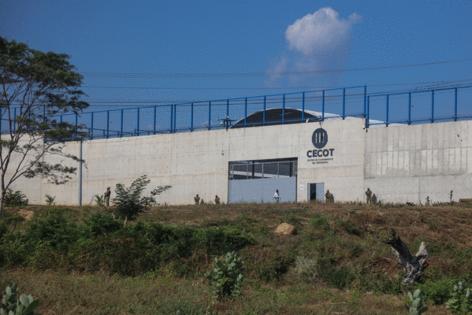US deported 50 Venezuelans with legal status to El Salvador, study finds
Published in News & Features
At least 50 Venezuelans who were deported and sent to a maximum security prison in El Salvador came to the United States legally and never violated immigration law, according to a new analysis from the libertarian Cato Institute.
The report compiled family accounts, along with entry documents and witness testimony, to determine how they crossed into the United States and what likely led to their detention.
“The government calls them all ‘illegal aliens.’ But of the 90 cases where the method of crossing is known, 50 men report that they came legally to the United States, with advanced U.S. government permission, at an official border crossing point,” the report stated.
More than 200 Venezuelans were deported to El Salvador in March following a wave of detentions and executive orders on immigration. Since then, they have had no access to lawyers or the ability to communicate with their families.
The records reviewed includes a temporary visa holder and four men who were authorized to travel through the U.S. refugee program. At least 45 scheduled appointments using the CBP One app, through which they were permitted to seek entry. Among those with appointments, 24 were given a permit to enter the U.S. and to stay for up to two years, while the other 21 were detained at the port of entry, according to the study.
The Venezuelans were held at the Terrorism Confinement Center, a maximum security prison that can hold up to 40,000 people. They were construction laborers, pipe installers, cooks, delivery drivers, a soccer coach, a makeup artist, a mechanic, a veterinarian, a musician and an entrepreneur, the study found.
David Bier, director of Immigration Studies at Cato and author of the analysis, said the findings underscore a broader goal not simply to target illegal immigration, but to reduce immigration overall.
“It reveals a grave threat to the rights of noncitizens in the United States,” Bier said. “And it may permanently change how people around the world view the United States: not as the land of freedom and rule of law, but a land of arbitrary detention at the whims of its leader like Russia or North Korea.”
The Venezuelans were deported under the authority of the 1798 Alien Enemies Act, an 18th-century wartime declaration. The detentions are tied to suspicions of gang affiliation, but how those suspicions are formed raises concerns.
Immigration officials flagged them as suspected members of the Tren de Aragua gang based on tattoos and a point-based system, according to a lawsuit the American Civil Liberties Union filed against the Donald Trump administration.
The Cato report found that 42 were labeled as gang members primarily based on their tattoos, “which Venezuelan gangs do not use to identify members and are not reliable indicators of gang membership.”
“All these legal immigrants denied gang membership, and only two appear to have had a U.S. criminal conviction of any kind, both for minor drug offenses,” Cato wrote in its report.
J. Tony Lopez, an immigration attorney in Tampa, said that once a deportation takes place, U.S. Immigration and Customs Enforcement typically refuses to share further details, leaving families without clarity on their relatives’ whereabouts or status.
Two women in Tampa have been unable to get information about their deported Venezuelan partners. One of them, Liyanara Sánchez, recognized her husband, Frengel Reyes Mota, in a video aired two weeks ago by One America News Network. It’s her only proof he’s alive. The other woman, Angela Leal, has not received any news about her boyfriend, Luis Carlos Jose Marcano.
_____
©2025 Tampa Bay Times. Visit tampabay.com. Distributed by Tribune Content Agency, LLC.







Comments